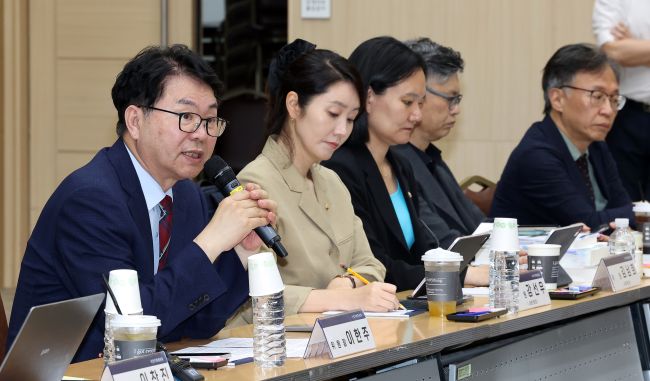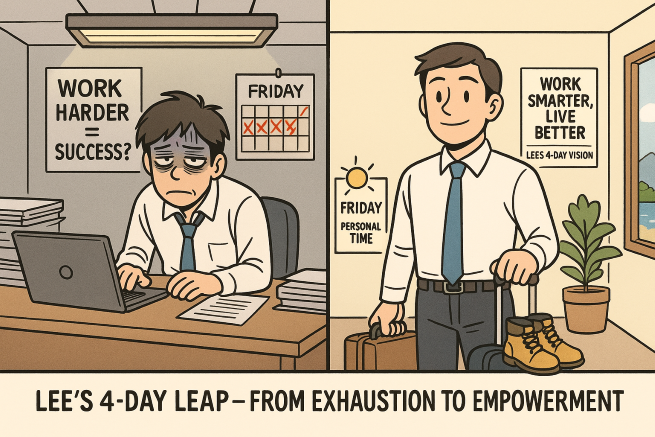
The Ministry of Employment and Labor has submitted its proposal for implementing President Lee Jae-myung’s campaign pledge of a 4.5-day workweek to the National Policy Planning Committee. (Image courtesy of Yonhap)
SEOUL, June 28 (Korea Bizwire) — South Korea’s information and communications technology (ICT) sector is increasingly embracing the four-day workweek, as President Lee Jae-myung’s campaign pledge to reduce working hours without cutting wages begins to materialize in practice.
Tech companies with high salaries and flexible work cultures are leading the shift, signaling a potential turning point in the nation’s labor landscape.
E-commerce platform Cafe24 announced it will transition to a four-day workweek starting next month, granting employees every Friday off without reducing salaries or increasing weekday hours. Employees who must work on Fridays will receive compensatory leave.
SK Telecom, a pioneer in the move toward shorter workweeks, has operated a de facto 4.5-day schedule since 2022, offering every second and fourth Friday off. With average annual salaries reaching ₩160 million (approximately $115,000), the company is frequently cited as a top-tier employer.
Other ICT firms have introduced creative variations: Kakao Games grants two Fridays off each month without docking vacation days; Woowa Brothers allows employees to start work at 1 p.m. on Mondays, limiting the workweek to 32 hours; and Toss finishes work early on Fridays while maintaining a 40-hour schedule.
Major IT firms like Naver, Kakao, Nexon, and NCSoft already operate under flexible work policies, as do large conglomerates including Samsung Electronics, LG Electronics, SK hynix, and POSCO.

Democratic Party presidential contender pledges transition to four-day week, legal limits on overtime, and protections for vacation rights. (Image created by ChatGPT)
President Lee’s proposed 4.5-day workweek enjoys broad public support. According to a recent survey by job portal Saramin, 86.7% of 3,576 salaried workers viewed the four-day workweek positively. Respondents cited improved work-life balance, increased productivity, better health, and potential boosts to the domestic economy as key benefits.
Strikingly, over 60% of supporters said they would accept a pay cut for a shortened week, with 7.7% the average tolerable reduction. The most acceptable range of pay cuts was between 5–10%, followed by 1–5%.
Still, concerns persist. Among those opposed to the policy, 52.5% feared wage reductions, 48.1% worried about increased workloads, and others cited potential harm to corporate competitiveness and unequal implementation across industries.
Experts and labor representatives caution that while economic uncertainty may weigh on businesses, it is also an opportune moment to modernize workplace culture.
“Korean workers still clock in significantly more hours than the OECD average,” one labor official noted. “This is a chance to rethink how we work, and invest in both productivity and well-being.”
M. H. Lee (mhlee@koreabizwire.com)
